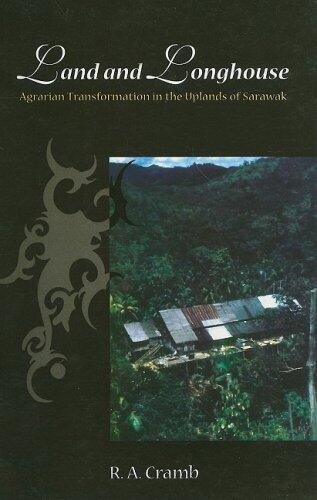
Land and Longhouse: Agrarian Transformation in the Uplands of Sarawak
door
R.A. Cramb
Nog geen beoordelingen
Formaat
Paperback
Pagina's
400
Taal
Engels
Gepubliceerd
Jul 31, 2007
Uitgever
NIAS Press
Editie
First Edition
ISBN-10
8776940101
ISBN-13
9788776940102
Beschrijving
R. A. Cramb explores the complex socio-economic changes experienced by the Iban people of Sarawak, delving into the intricate relationship between land use, culture, and agrarian practices. The narrative illustrates how traditional agricultural systems have evolved under the pressures of colonial influence and modernization. The author meticulously details the transition from pre-colonial farming methods to contemporary practices, emphasizing the impact of external forces on local livelihoods and identities.
Through extensive research and vivid descriptions, the work sheds light on the resilience of the Iban in adapting to changing circumstances while preserving core aspects of their cultural heritage. Cramb paints a picture of the uplands as not just a geographic space but a vital environment shaped by the people who inhabit it. His examination reveals the intricate balance between sustaining traditional ways of life and engaging with new agricultural innovations.
The book further investigates the broader implications of agrarian transformation in Southeast Asia, highlighting how these changes resonate beyond local boundaries. Cramb's insights delve into themes of ecological sustainability, cultural identity, and economic development, inviting readers to reflect on the intertwined fates of people and land in the region.
Overall, readers are offered a comprehensive view of the Iban's journey through agrarian change, framed within historical contexts and contemporary challenges. Cramb's thoughtful analysis serves as both a tribute to the Iban culture and a critical examination of the forces shaping rural livelihoods in the modern world.
Through extensive research and vivid descriptions, the work sheds light on the resilience of the Iban in adapting to changing circumstances while preserving core aspects of their cultural heritage. Cramb paints a picture of the uplands as not just a geographic space but a vital environment shaped by the people who inhabit it. His examination reveals the intricate balance between sustaining traditional ways of life and engaging with new agricultural innovations.
The book further investigates the broader implications of agrarian transformation in Southeast Asia, highlighting how these changes resonate beyond local boundaries. Cramb's insights delve into themes of ecological sustainability, cultural identity, and economic development, inviting readers to reflect on the intertwined fates of people and land in the region.
Overall, readers are offered a comprehensive view of the Iban's journey through agrarian change, framed within historical contexts and contemporary challenges. Cramb's thoughtful analysis serves as both a tribute to the Iban culture and a critical examination of the forces shaping rural livelihoods in the modern world.
Recensies
Nog geen beoordelingen
Wees de eerste om dit boek te recenseren en deel je gedachten
Voeg Eerste Recensie ToeLeeslogboek
Geen leeslogboeken gevonden
Begin met het volgen van je leesvoortgang om logboeken hier te zien
Voeg je eerste leeslogboek toeNotities
Geen notities gevonden
Begin met het toevoegen van notities om ze hier te zien
Voeg je eerste notitie toeTransactielogboek
Geen transactielogboeken gevonden
Begin met het volgen van je boektransacties om logboeken hier te zien
Voeg je eerste transactielogboek toe